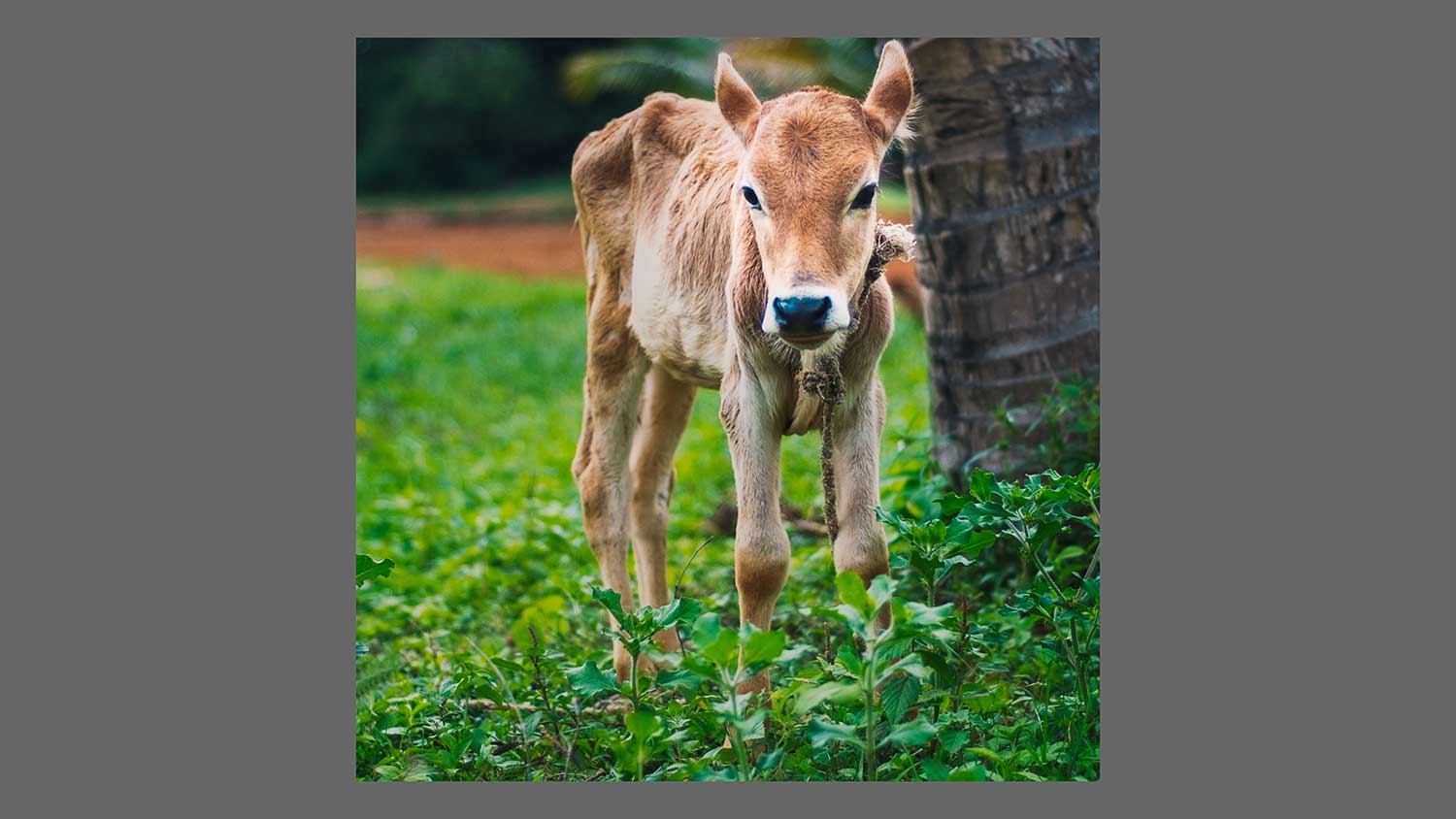Our Bucolic Neighbours, and Some Questions on Land Use
We could see the horizon on all sides now, and fertile land running all the way up to it. I wondered at the wisdom of granting arable land to the industry when the nation suffers a shortage of it.

We drove into the village by our Hassan plant and stopped where an ox stood rooted in the middle of the narrow lane. The lane was the main street. On our left was the village-well, by it a red-brick shed with straw and dung on walls and roof. At a corner of the shed squatted a large hen amid a bountiful brood. To the right of where our car stood a lane went up which was two-shoulders-wide, with tiny tile-roofed huts flanking it. Large black and reddish-brown stones jutted out from the ground and appeared to challenge the bare-foot villagers. They seemed like clean dwellings, their slouch suggesting this was an old village.
A man we know came down the lane and smiled broadly at us, but I was slow to respond, and he checked himself. He has helped find people for construction works in our factory. We walked up the lane with him, with a few children following, learning a little of the place as we went. The villagers lost their lands to the government, which acquired them to create an industrial estate. Now they are left with three of four acres for each family, and the richest of them owns ten acres. We paused before a neat patch with a few coconut palms. The lands that we could see were not seriously farmed. The villagers appear to have lost the drive to increase yield or expand their possessions, anticipating further acquisition, dispossession.
Very soon we arrived at the edge of the village. The last house there with two coconut trees on a small front-yard belonged to our companion. We walked on, and he asked us to halt a moment, accept coconut-milk from his trees. We declined the invitation, saying "next time," and he was okay with it. I watched him until he entered his home, the lines on his trousers crisp, his shirt not wrinkled even where it fell over his seat. We went on further, well beyond the village, to where it met a road which carried on a long way ahead. We could see the horizon on all sides now, and fertile land running all the way up to it. I wondered at the wisdom of granting arable land to industry when the nation suffers a shortage of it.
It began to get dark, we turned back.
A dark hulk of a man stood waiting for us by the lane, who was not there when we came in. Two scrawny men pressed his shoulders. "How is our village?" he said.
"Very pretty", I said, not stopping, passing him.
"What's here to like?" he said. "How's Bangalore?"
"Intolerable. That's why we're here."
"You want to make a Bangalore out of this place?"
People had come out of their homes, women, men, smiling, friendly. A shrunken old man whose wrinkled skin was burnt to ebony got off a ledge and asked if we are from the factory. "Take care of our village," he said. The hulk came up and took charge of the door of my car, opening it wide.
"You must be the owner of the factory," he said, holding the door still.
"Shall we close the door?" I said. He shut it gently enough.
It took repeated manoeuvring to turn round.
"You're ruining your car," he said to me, watching the squishing tires on the metalled lane. But his eyes were more at their corners, checking if he had the attention of everybody, his voice raised for all to hear.
But the others were smiling, reaching out, the women excitedly so, gesturing to Sujaya, wanting to make conversation. There was no rancour among them. It's a village where news from Bangalore arrives fast, but its wealth not at all. Their self-respect was holding, despite weakened hope.
We waved as we drove out, and they waved back. We raised the glass on our windows.
